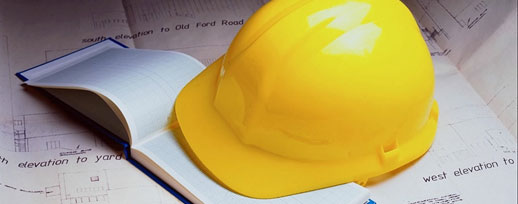
The builder from hell – and how to avoid him
An occasional (and not usually very remunerative) client of the contentious construction lawyer is the houseowner who is experiencing the builders from hell. (About as frequent is the builder who finds himself at the wrong end of the client from hell, but let’s leave that for a future article.)
I need not dwell long on the experience itself. Its unique joys are well known; perhaps you have learned of them from a relative, friend or neighbour, or have even suffered them yourself. The work will be prolonged indefinitely, if not abandoned before completion; in fact it may never be fully completed. The work will be full of defects, which the builder will fail to remedy. You may find you have overpaid the builder. You may receive a large claim from him. The occurrence of one or more of these events in sufficient magnitude will denote the infernal provenance of the builder concerned.
If you wish to avoid the builder from hell, or to minimise the consequences, here are some of the things you should do.
· Visit Companies House and make a company search of the builder before engaging him. (You can pay £1 by credit card and download the latest filed accounts.)
· Obtain written or oral references from current or previous clients. However, don’t assume that because the builder did a perfect job for your neighbours he will necessarily do the same for you.
· Consider employing a qualified project manager and/or quantity surveyor if the size of the project warrants the additional expense. It may save you money in the long run.
· On this theme, many homeowners either don’t know that they need project management and cost control or assume that their architect or other designer has the necessary skills. Check if this is the case before you rely on your architect for these functions.
· Enter into some sort of formal agreement. You could purchase the appropriate JCT homeowner contract for up to £22 through RIBA Bookshops.
· Alternatively, write the builder a letter stating the agreed terms, including at least the following:
o Parties’ names and addresses
o Site address
o Short description of the work
o List of the drawings and documents which give a full description of the work (see below)
o Whether you or the builder are to apply for planning permission, building regulations approval, and party wall consents or awards
o Whether you or the builder are to insure the works in progress (and see below)
o Date when the builder is to begin the work
o Date when the builder is to finish the work
o Any restrictions on working hours and days
o Any requirements relating to the security of the premises
o Contract price
o Each instalment of the contract price, and when it is payable (see below).
· Agree to pay the builder according to the stages of work actually achieved; and not in accordance with a timetable (i.e. on fixed dates), because if the builder is running late you don’t want to become liable to pay more money than the builder’s work so far is worth.
· Be clear about the work which the builder is to do. If there is no detailed specification, write a performance specification which describes your expectations of the finished work and include it in the contract.
· Make sure the works are covered by your building and contents insurance, unless the builder has agreed to insure them.
· If the builder is to insure the works, ask him to produce evidence of his “all risks” insurance policy. Check it is up to date and covers the construction period.
· Ask to see the builder’s public liability policy and check that it is up to date and covers the construction period.
· Don’t pay for materials in advance. Professional builders don’t normally ask for this; they finance their work upfront.
· Don’t pay anything without receiving an invoice for it. An uninvoiced request for cash is not the sign of a professional builder.
· Don’t pay cash with no invoice if you suspect that the builder is trying to evade VAT or income or corporation tax. (Apart from legal and moral considerations, if he’s prepared to defraud the tax authorities he won’t think twice about doing the same to you. And once again, this is not what you expect from a professional builder.)
I listed these points in an article I wrote in September 2002, and was interested to read about a similar checklist from an article in The Times, which advised readers –
· to send a detailed specification to as many building firms as possible and to analyse each quotation carefully.
· to enter into a written contract with, if possible, a “penalty clause” stating a fixed amount payable by the builder for each week that the project over-runs. (We didn’t include a “penalty clause” as an essential term, since we regard this as desirable rather than essential. There are also certain legal issues involving the concept of a “penalty clause”.
· to be wary of builders who ask for cash up front, since “a good firm will have enough work on to guarantee cash flow.”
· to beware of plumping for the lowest estimate.
· on the desirability of a detailed quote including a contingency of around 10% to cover unforeseen circumstances.
· on checking to see if the contractor’s letter paper shows a contact address and telephone number (not just a mobile).
· to find out if the contractor belongs to The Federation of Master Builders or a similar organisation.